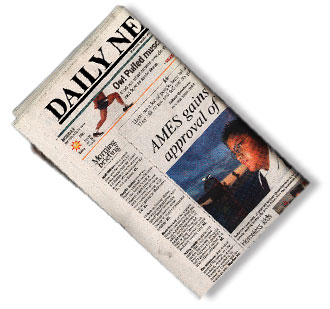
My final media revelation is a result of the script writing we did in class. Until this class, I'd never done any script writing. Though I didn't exactly enjoy the process, it was interesting. I'd never considered how detailed scripts had to be and how much work truly went into them. It must be even more of a process when the script is something original, rather than just an adaptation of something previously made. Commercial scripting was a long enough process; I can't imagine scripting an entire play or movie. However, commercial scripting is an excellent skill to add to my repertoire.


